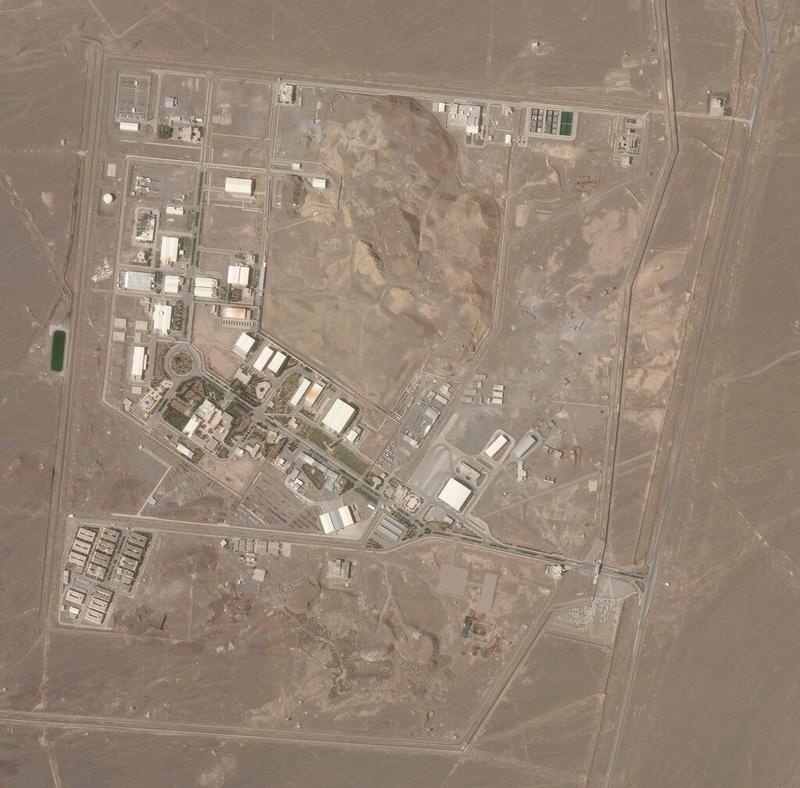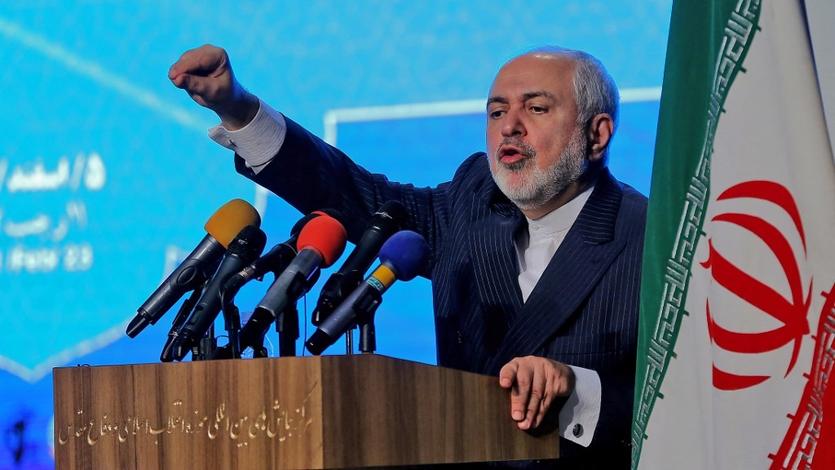 This satellite photo from Planet Labs Inc shows Iran's Natanz nuclear facility on April 7, 2021. (PLANET LABS INC VIA AP)
This satellite photo from Planet Labs Inc shows Iran's Natanz nuclear facility on April 7, 2021. (PLANET LABS INC VIA AP)
DUBAI - Iran has begun 60 percent uranium enrichment, the country’s chief nuclear negotiator Abbas Araqchi told state media on Tuesday, a day after Tehran accused arch-foe Israel of sabotaging a key nuclear site.
Araqchi made his announcement shortly before the resumption of talks in Vienna aimed at reviving Tehran’s 2015 nuclear deal with major powers, an accord Israel fiercely opposed, after former US president Donald Trump abandoned it three years ago.
The 2015 nuclear deal had capped the level of purity to which Iran can enrich uranium hexafluoride, the feedstock for centrifuges, at 3.67 percent, far below the 90 percent of weapons grade
Last week, Iran and the global powers held what they described as “constructive” talks to salvage the deal, which has unraveled as Iran has breached its limits on sensitive uranium enrichment since Trump reimposed harsh sanctions on Tehran.
READ MORE: Iran blames Israel for Natanz outage, vows revenge
The deal had capped the level of purity to which Iran can enrich uranium hexafluoride, the feedstock for centrifuges, at 3.67 percent, far below the 90 percent of weapons grade.
Iran in recent months has raised enrichment to 20 percent purity, a level where uranium is considered to be highly enriched and a big step towards enriching to weapons grade.
'Very bad gamble'
Iran’s top diplomat said earlier on Tuesday that an attack on its Natanz nuclear facility which it blames on Israel was a “very bad gamble” that would strengthen Tehran’s hand in talks to revive a 2015 nuclear deal with major powers.
 In this Feb 23, 2021 photo, Iranian Foreign Minister Mohammad Javad Zarif speaks during a press conference at the International Conference on the Legal-International Claims of the Holy Defense in the capital Tehran. (ATTA KENARE / AFP)
In this Feb 23, 2021 photo, Iranian Foreign Minister Mohammad Javad Zarif speaks during a press conference at the International Conference on the Legal-International Claims of the Holy Defense in the capital Tehran. (ATTA KENARE / AFP)
Tehran has said an explosion on Sunday at its key nuclear site was an act of sabotage by arch-foe Israel and vowed revenge for an attack that appeared to be latest episode in a long-running covert war. Israel, which the Islamic Republic does not recognize, has not formally commented on the incident.
Israel played a very bad gamble if it thought that the attack (on Iran's Natanz nuclear facility) will weaken Iran’s hand in the nuclear talks ... On the contrary, it will strengthen our position.
Mohammad Javad Zarif, Iran's Foreign Minister
“Israel played a very bad gamble if it thought that the attack will weaken Iran’s hand in the nuclear talks,” Iranian Foreign Minister Mohammad Javad Zarif told a joint news conference with his Russian counterpart in Tehran.
“On the contrary, it will strengthen our position.”
US President Joe Biden has said Tehran must resume full compliance with restrictions on its nuclear activity under the deal before Washington can rejoin the pact.
Iran and remaining parties to the deal will resume talks in Vienna on Wednesday.
Washington has suggested that it might be willing to ease some sanctions on Iran beyond those whose removal was mandated by the original nuclear deal. But Iran insists that all sanctions should be lifted at once.
“The United States should know that neither sanctions nor sabotage will give them the means to negotiate, and that they will only make the situation more difficult for them,” Zarif said.
ALSO READ: Iran building new production hall for centrifuges in Natanz
The White House said on Monday the United States was not involved in Sunday’s attack and had no comment on speculation about the cause of the incident.
“Sunday’s sabotage occurred in a power cable duct leading to the centrifuge machines. This was not an external attack and the location of the sabotage has been clearly determined,” Iranian government spokesman Ali Rabiei was quoted by state media as saying.
Rabiei appeared to be referring to a person the Iranian authorities have said caused the electricity outage at Natanz and whose arrest is being sought. Rabiei said the damage caused could be quickly repaired.
Iranian authorities say uranium enrichment has not stopped at the site.
“What happened in Natanz makes it possible for Iran to legally do whatever it takes to ... compensate for this terrorist stupidity,” said Zarif. “I assure you that in near future, the Natanz site will move forward with more advanced centrifuges.”


